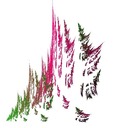- create a folder called 'patch' and put your patch (which has to be named as "droidparty_main.pd') into it
- './pack-patch' is a bash script, if you wanna see what it does open it with a text editor and try to read it.
- if you cannot run './pack-patch', .zip your patch folder and put it into res/raw directory
- README.txt resides in the main folder called MySynthesizer
-
Running your patches on Android usind PdDroidParty in 10 Steps
-
I am stuck at the starting gate. When I run PdDroidParty on my Samsung tablet it finds no compatible apps. So all I have is a black screen with a message at the top. There seems to be no way to put in a search path.
I have a folder on my internal SD card named pdDroidParty. In it are the three folders created by the demo, test, and abstractions archives. I would assume that at least these would be found!
Thanks for any help.
check out my albums on Stolen Mirror and Gruenrekorder
-
If some people are still trying to publish apps from pddroiparty I would advise to look here :
http://forum.pdpatchrepo.info/topic/9753/ppp-pure-data-libpd-based-jamming-system
-
Is it possible to manually edit data structures in droid party?
-
I think it's not possible.
Data structure are not supported in the sense that there is no class to display them as gui elements on the android side.
Dan Wilcox at pd-party (ios version) as listed this as a possible future feature. It's probably something that would be interesting but may require a consequent amount of work.
What would you like to do that isn't possible to do yet ?
-
I'm interested in being able to manipulate graphics on touchscreen devices as a control interface for a patch
-
something like what was done in plasma sound?
https://github.com/rjmarsan/PlasmaSound -
Looks interesting. I'll check this out. thanks
-
There is actually several options here
-
either you are a developper so you can directly use libpd as an audio engine, and use the api to send or receive data from your patch to/from you favorite language (c# c++ java etc.) you can then create your ui in this programming language. Plasma sound uses a mix of android specific code and the processing-for-android drawing api. With this method you need to use something like eclipse or android studio but you can create binary signed apps that you can upload to the android store. (it works great, I've published several apps with this combination).
-
either you want to stick with pd :
1- pddroidparty will run your patch in a specific android app emulating the pd gui with a few additions (touch surface etc.), the sources from Chris target android only. But Pd-party by danomatika will target ios soon (now beta I think).
2- mobmuplat is also a very neat project, where you can do probably a little more with the graphics. android and ios.
3- sceneplayer on android is also a way to read patchs on android, it provides a way to display/hide and move images too. It target android, the ios version rjdj is sadly long lost.
4- ppp mentionned before, will help you publish app using pd as a wysiwyg editor in the same way of pddroidparty, but you'll end up with a signed binary ready to distribute. It also packs a midi clock shared via wifi to sync several apps with one another.
I think it sums up all the options here.
So back to data-structures : data-structures are in libpd, but none of the projects above supports them to my knowledge, you can't display or interact with them. If you program you can probably access them through libpd, draw/manipulate them in the programming language of your choice.
-
-
Hey there! I'm using a Huawei P9 Lite with Android 7.0
If you guys don't see any patches in your installed PdDroidParty app, try to put the files on your internal storage. PdDroidParty did not see the folders on my SD card and every source on installation says that you should make a folder on your SD card. Maybe this is because of newer version of Android, I don't know. Anyway it works like charm, if anyone wants to get started with this, definitely check out the demo, test .zip files!

